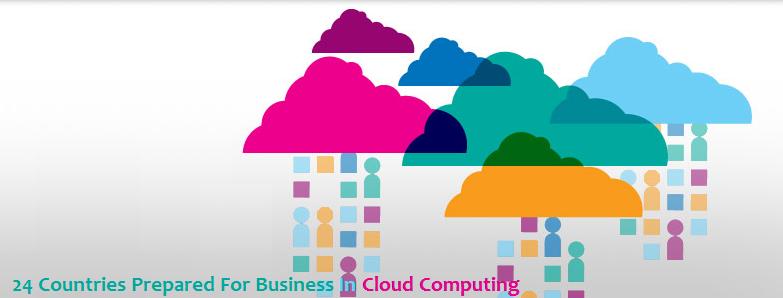24 Countries Prepared For Business In Cloud Computing

Japan is the country that is better prepared in terms of technological infrastructure and regulations to support the growth of cloud computing. The finding comes from a global study by the Business Software Alliance (BSA) with 24 nations.
According to the BSA, the survey aimed to assess the economic potential of the cloud in these markets and suggest that what local governments need to do. According to the association, it is necessary to improve policies and regulations to meet the cloud computing model to data processing that crosses borders.
The countries were scored, taking into account their laws and regulations for provision of cloud watching seven areas: data privacy, cyber security, cyber crime control, preservation of intellectual property, technology interoperability and legal harmonization, free trade, and infrastructure IT.
The top ten that have more robust policies for business in the cloud are Japan, Australia, United States, France, Italy, UK, Korea, Spain, and Singapore.
The true benefits of cloud computing come with scale and service providers should have the ability to deliver service anywhere in the world.
However, this model requires laws and regulations to allow the flow of data easily across borders. Each country has its rules for trade in digital services, but governments need to harmonize them to follow this trend.
Difference Between Nations
The study found that the environment for cloud shows different characteristics among advanced economies and developing countries. In Japan, the United States and United Kingdom, for example, there are solid legal foundations and regulations to support the growth of cloud computing. In emerging countries like China, India and Brazil, there is still much to be done to integrate with the global cloud.
Japan is ranked first because of its comprehensive privacy protections that do not inhibit digital commerce. It also offers a range of criminal protection and robust IT infrastructure. The Asian country is still a leader in developing international standards of technology.
One surprising finding of the study is that some of the countries that are doing well also have laws and regulations that conflict with other nations. One example is the regulation of the European Union Data Protection that can generate the economic impact for large-scale business in the cloud.
To have a global market for cloud, laws of all countries don’t need to be identical, but they must be compatible. Privacy and security rules are especially important. They should promote efficient data management while encouraging international trade.
To assist countries, the BSA proposes seven policies that governments should strengthen to expand economic opportunities in the cloud hosting solutions:
1 – Protecting the privacy of users by allowing the free flow of information and commerce.
2 – Promote advanced cybersecurity practices without requiring the use of specific technologies.
3 – Fighting cybercrime with clear measures and actions against the perpetrators.
4 – Provide protection strengthened against the misappropriation and breach of cloud technologies.
5 – Encourage openness and interoperability between cloud providers.
6 – To promote free trade, reducing barriers and eliminate preferences for certain products or companies.
7 – Provide incentives for private sector to invest in broadband infrastructure and promote digital inclusion.
Here are the rankings of 24 countries surveyed and their score:
01 – Japan – 83.3
02 – Australia – 79 2
03 – Germany – 79.0
04 – United States – 78.6
05 – France – 78.4
06 – Italy – 76.6
07 – United Kingdom – 76.6
08 – Korea – 76.0
09 – Spain – 73.9
10 – Singapore – 72.2
11 – Poland – 70.7
12 – Canada – 70.4
13 – Malaysia – 59.2
14 – Mexico – 56.4
15 – Argentina – 55.0
16 – Russia-52.3
17 – Turkey – 52.1
18 – South Africa – 50.4
19 – India – 50.0
20 – Indonesia – 49.7
21 – China – 47.5
22 – Thailand – 42.6
23 – Vietnam – 39.5
24 – Brazil- 35.1
- How Cloud Computing Is Changing The Labor Market - March 25, 2015
- Adopting Infrastructure as a Service Can be a Good Deal - March 17, 2015
- Will Virtualize? Take These Six Points Into Consideration - March 12, 2015
